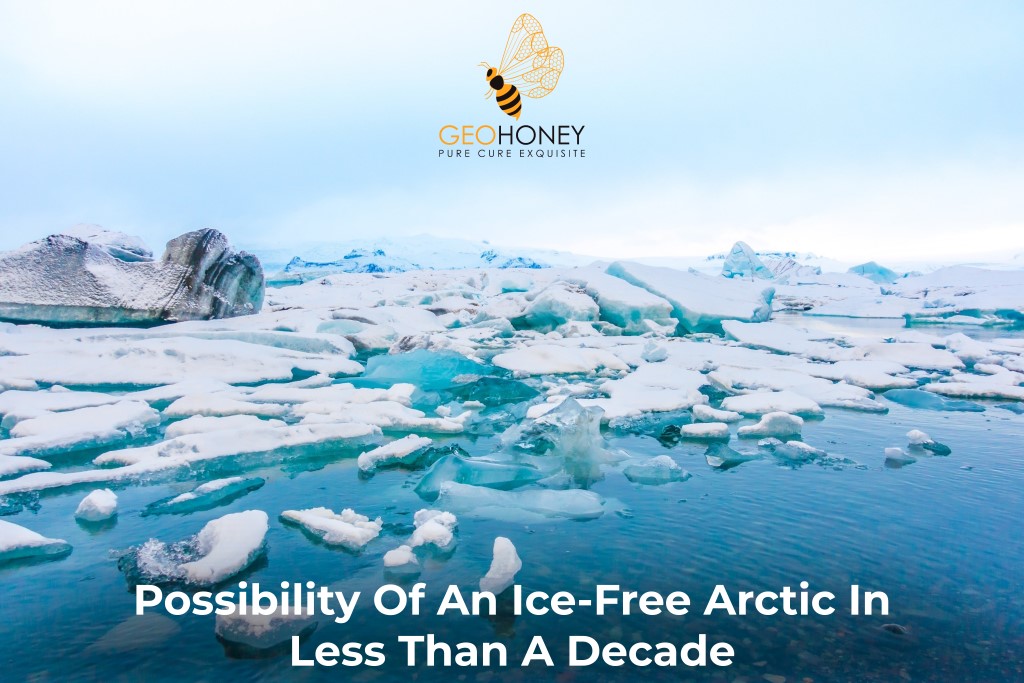- Tokyo: 08:01
- Singapore: 07:01
- Dubai: 03:01
- London: 23:01
- New York: 18:01
The Possibility of an Ice-Free Arctic in Less Than a Decade

A recent study from the University of Colorado Boulder indicates that the Arctic region could witness summer days with minimal sea ice within the next few years. The study, published in the journal Nature Reviews Earth & Environment, suggests that the Arctic might experience its first ice-free day sooner than previously estimated, potentially occurring over a decade earlier than expected.
By the middle of this century, the Arctic is projected to see a month without floating ice during September, the month when sea ice coverage is at its lowest. Towards the end of the century, the ice-free season could extend to several months annually, depending on future emission scenarios. Under high-emission scenarios, the Arctic could even be consistently ice-free in some winter months.
The definition of "Ice-Free" in the Arctic is when the ocean has less than 1 million square kilometers of ice, which is less than 20% of the region's seasonal minimum ice cover in the 1980s. This threshold represents a significant decrease compared to recent years when the Arctic Ocean had around 3.3 million square kilometers of sea ice area in September.
Researchers emphasize that predicting the timing of the first ice-free conditions in the Arctic is crucial for understanding future changes in the region. The study highlights that greenhouse gas emissions are the primary drivers of sea ice loss, leading to potential impacts on Arctic wildlife and coastal communities.
While the prospect of an ice-free Arctic is concerning, researchers point out that Arctic sea ice has demonstrated resilience in the past. They suggest that even if all Arctic sea ice melts due to warming, it could potentially return within a decade if measures are taken to reduce atmospheric CO2 levels.
In conclusion, while the Arctic's transition to an ice-free state seems inevitable, efforts to mitigate greenhouse gas emissions remain crucial to minimize the extent and duration of ice-free conditions in the region.
Source: scitechdaily




Due to the excessive effect of climate change.